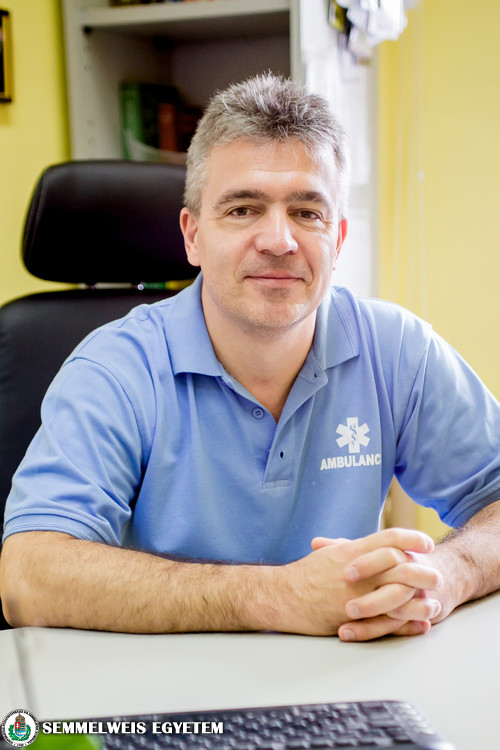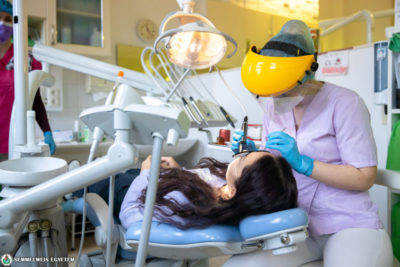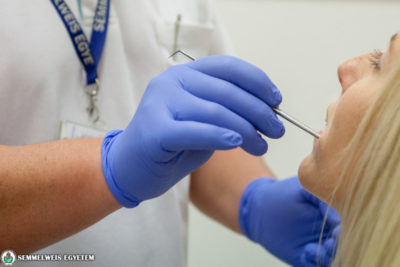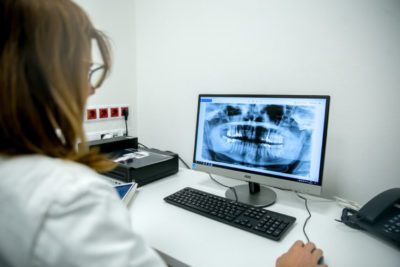There are annually 3000 wisdom teeth removal surgeries at the Department of Oro-Maxillofacial Surgery and Stomatology of Semmelweis University. One of the reasons of wisdom teeth removal is the eruption of wisdom teeth pushing neighboring teeth aside, which can unravel years of dental work. This area can be difficult to properly brush and floss, their hard-to-reach location make these teeth prime targets for cavities and plaque buildup. Wisdom teeth are the last adult teeth to come into the mouth between the age 18-25, however they can also cause issues at an earlier stage.
 Treating wisdom teeth have always been a major issue in dentistry. While most people have four wisdom teeth, 13% of people never develop wisdom teeth at all- said dr. Árpád Joób-Fancsaly, vice-head of the Department of Oro-Maxillofacial Surgery and Stomatology. 70-80% of people experience wisdom teeth problems, as there is not enough space for them to erupt into the correct position causing symptoms. Wisdom teeth are at the back of the mouth, and the last ones to develop. The jaw isn’t large enough to give them room, wisdom teeth may come in crooked or get impacted causing terrible pain.
Treating wisdom teeth have always been a major issue in dentistry. While most people have four wisdom teeth, 13% of people never develop wisdom teeth at all- said dr. Árpád Joób-Fancsaly, vice-head of the Department of Oro-Maxillofacial Surgery and Stomatology. 70-80% of people experience wisdom teeth problems, as there is not enough space for them to erupt into the correct position causing symptoms. Wisdom teeth are at the back of the mouth, and the last ones to develop. The jaw isn’t large enough to give them room, wisdom teeth may come in crooked or get impacted causing terrible pain.
Dentists and oral surgeons may advise patients between the age of 18-30 to get their wisdom teeth removed, as crowded teeth may lead to further orthodontic issues. If dentists are able to discover bad positioned wisdom teeth in children aged between 8 and 10, they may advise the surgical removal of wisdom teeth germs. However, dr. Árpád Joób-Fancsaly advises to wait until the age 16-18, as the jaw has already been fully developed by this stage and wisdom teeth may emerge without any problems. In this case wisdom teeth are easier to clean and can grind and crush food normally like any other teeth.
The removal procedure involves a normal extraction in one third of the cases, two thirds of patients should undergo dental surgery. The recovery usually takes longer- added dr. Joób-Fancsaly. The gums can take up to 10 days to recover, the bone usually takes longer (6 months) to heal than the gum tissue, as new bone tissue has to completely fill in the hole. Patients can expect to see swelling, bleeding or pain on the side of the extraction, but doctors may prescribe antibiotics to accelerate healing.
-added dr. Joób-Fancsaly.
Patients who decide to keep their wisdom teeth need to have a panoramic x-ray done every year in order to prevent further complications and the development of a dental cyst. If left untreated, dental cysts can become infected and develop into an abscess, which can spread the bacterial infection throughout the body causing hair loss and skin diseases- added dr. Joób-Fancsaly.
Eszter Csatári-Földváry
Photo: Attila Kovács – Semmelweis University
Translation: Norbert Lukács


